| Portrait | Name | Term of office | Concurrently held office | Political party | Prime Minister |
|---|
|  | John Gummer
MP for Suffolk Coastal | 1994 | 2 May
1997 | – Secretary of State for the Environment | Conservative | | John Major |
|---|
|  | Nick Raynsford
MP for Greenwich and Woolwich | 2 May
1997 | 29 July
1999 | – Parliamentary Under-Secretary of State for Construction | Labour | | Tony Blair |
|---|
|  | Keith Hill
MP for Streatham | 29 July
1999 | 7 June
2001 | – Parliamentary Under-Secretary of State for Transport | Labour |
|---|
|  | Nick Raynsford
MP for Greenwich and Woolwich | 7 June
2001 | 12 March
2003 | – Minister of State for Local and Regional Government [a] | Labour |
|---|
|  | Tony McNulty
MP for Harrow East | 12 March 2003 | 13 June
2003
[3] | – Parliamentary Under-Secretary of State for Transport | Labour |
|---|
|  | Keith Hill
MP for Streatham | 13 June
2003 | 6 May
2005
[4] | – Minister of State for Housing and Planning | Labour |
|---|
|  | Jim Fitzpatrick
MP for Poplar and Canning Town | 6 May
2005 | 28 June
2007 | – Parliamentary Under-Secretary of State for International Development | Labour |
|---|
|  | Tessa Jowell
MP for Dulwich and West Norwood | 28 June
2007 | 3 October
2008 | – Minister for the Olympics
– Paymaster General | Labour | | Gordon Brown |
|---|
|  | Tony McNulty
MP for Harrow East | 3 October
2008 | 5 June
2009 | – Minister of State for Employment and Welfare Reform | Labour |
|---|
|  | Tessa Jowell
MP for Dulwich and West Norwood | 5 June
2009 | 11 May
2010 | – Paymaster General
– Minister for the Olympics
– Minister for the Cabinet Office | Labour |
|---|
| Office not in use [b] | 11 May
2010 | 17 July
2016 | | | David Cameron (I·II) |
|---|
|  | Gavin Barwell
MP for Croydon Central | 17 July
2016 | 9 June
2017 | – Minister of State for Housing and Planning | Conservative | | Theresa May |
|---|
| 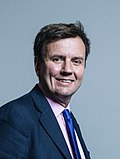 | Greg Hands
MP for Chelsea and Fulham | 13 June
2017 | 9 January
2018 | – Minister of State for Trade Policy | Conservative |
|---|
| 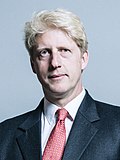 | Jo Johnson
MP for Orpington | 9 January
2018 | 9 November
2018 | – Minister of State for Transport | Conservative |
|---|
| 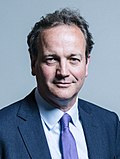 | Nick Hurd
MP for Ruislip, Northwood and Pinner | 14 November
2018 | 18 December
2019 | – Minister for Policing and the Fire Service | Conservative | |
|---|
| Boris Johnson |
|---|
| 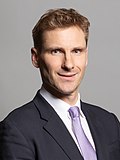 | Chris Philp
MP for Croydon South | 18 December
2019 | 13 February
2020 | – Parliamentary Under Secretary of State for Justice (until 25 July 2019)
– Minister of State for Northern Ireland (from 25 July 2019) | Conservative |
|---|
| 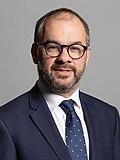 | Paul Scully
MP for Sutton and Cheam | 13 February
2020 | 13 November
2023 | – Parliamentary Under-Secretary of State for Small Business, Consumers and Labour Markets (until 8 July 2022)
– Minister of State for Local Government and Building Safety (8 July 2022 to 27 October 2022)
– Parliamentary Under-Secretary of State for Tech and the Digital Economy (from 27 October 2022) | Conservative | |
|---|
| Liz Truss |
|---|
| Rishi Sunak |
|---|
|  | Greg Hands
MP for Chelsea and Fulham | 13 November
2023 | 5 July 2024 | – Minister of State for Trade Policy | Conservative |
|---|
| Office not in use [c] |
|













